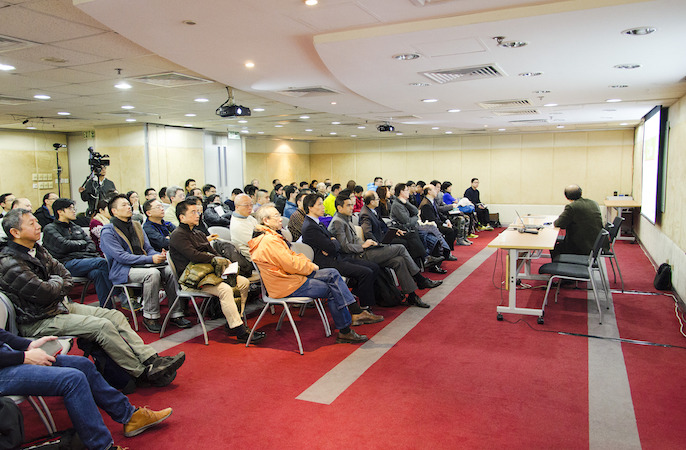Mar - Apr 2016
Tackling climate change — smart grid, energy codes and biodiesel
March 6, 2016

Hong Kong Green Building Council (HKGBC) organised a seminar on 23 January 2016 to gather speakers from diverse backgrounds to share their work on tackling climate change. The half-day seminar covered topics such as smart grid, biodiesel and the newly launched Building Energy Code 2015. About 100 practitioners attended the said event to keep abreast of Green building industry trends.
Smart grid, Smart city
With the first full smart metering platform in Southeast Asia, CLP Power Hong Kong Limited is providing new services that could help customers save energy and money, whilst improving the safety, reliability and security of the supply. The smart meter features remote capture of energy consumption data, and users can have access to the information and get notifications from different online platforms, e.g., web portal, mobile applications, etc.
During the pilot run early in 2013, there were over 4,000 residential and SME customers that participated and the peak demand for electricity was consistently reduced. TF Chow, COO of CLP Power Hong Kong Limited, believed that by partnering with the businesses and communities in exploring new ideas, smart grid could play an integral role in Hong Kong’s journey to becoming a smart city.
Building Energy Code 2015
The 2015 edition of the Building Energy Code (BEC) have been published in the gazette in December 2015. The energy efficiency requirements as stipulated in the Code have been tightened in tandem with the latest technology and development of international standards. Ir Chan Sheungchuen, an engineer from the electrical and mechanical services department of HKSAR government who has been actively involved in the formulation of the Code, highlighted the major changes in lighting, electrical, airconditioning, lift and escalator installation introduced in BEC 2015.
As Roberto Vazquez, chief technology officer and acting CEO of ASB Biodiesel, introduced biodiesel—which is made from waste oils—that offers a solution to the global challenges: air pollution, global warming, waste disposal, economic development and energy security. Nowadays, the source of waste oils in Hong Kong are mainly from used cooking oil, grease trap waste and waste animal fat. Biodiesel has been applied to a number of Green buildings in Hong Kong for generating electricity and heat through cogeneration or trigeneration systems. Vazquez also shared with participants the positive impact of biodiesel with higher blend percentages on increased performance and lower greenhouse gas emissions.
To read the complete article, get your hardcopy at our online shop/newsstands/major bookstores; subscribe to FuturArc or download the FuturArc App to read the issues!
Previously Published Happening
Contact us at https://www.futurarc.com/contact-us for older articles.

